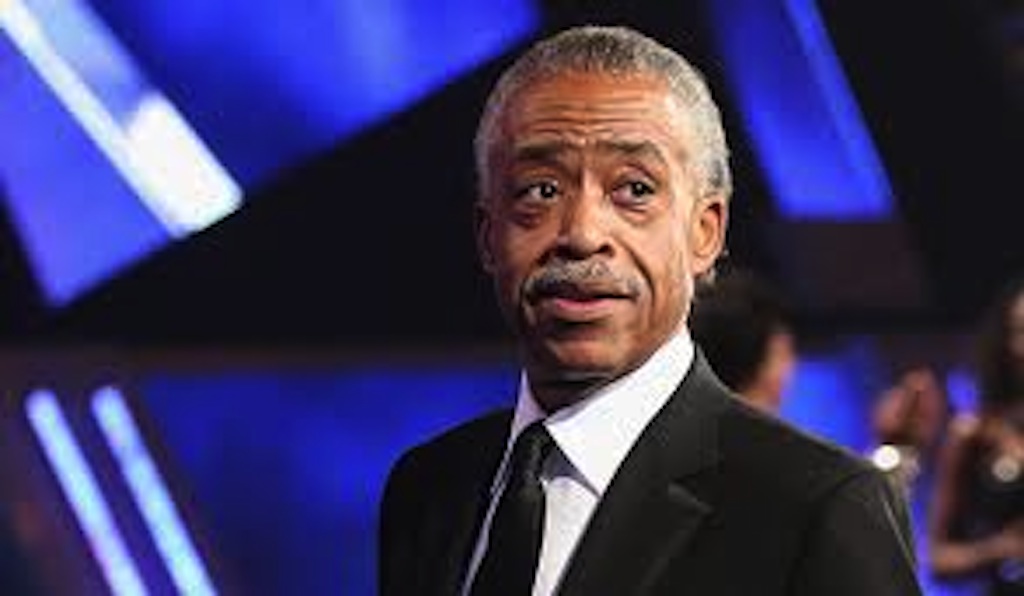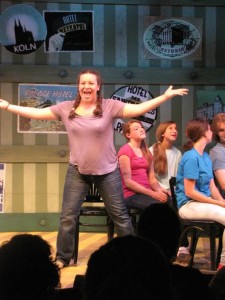On Monday January 27, Berkeley Carroll held its annual Martin Luther King Jr. Assembly. We hold this meeting to honor the memory of Martin Luther King Jr., his message of equality and how he changed the world for the better. This year’s assembly was especially noteworthy as the whole school had the honor of hearing from special guest Reverend Al Sharpton.
The assembly started off with the upper school choir singing “Dream A Dream” and then a rousing Gospel song. Singing with the chorus, I could see how much fun the audience was having, clapping along as we sang. We then heard from Mr. Sanchez, an English teacher in the Upper School, who talked about how his appreciation of Martin Luther King Jr. grew and changed over the years, from the time when he was kid writing an essay about him and then, eventually, teaching about him to his students. He began by showing a record of Stevie Wonder, “Happy birthday,” and then later said how this song and other things in culture had the power to inspire political change. Ms. Ellis then introduced the Reverend Al Sharpton.
Reverend Al Sharpton has been one of America’s most outspoken civil rights leaders for over thirty years. He was a Democratic presidential candidate in 2004 and he is currently the host of his own nightly talk show on MSNBC, PoliticsNation. Rev. Sharpton is also the president of the not-for-profit civil rights organization “National Action Network.” The website for the National Action Network explains that its mission is to work “within the spirit and tradition of Dr. Martin Luther King, Jr. to promote a modern civil rights agenda that includes the fight for one standard of justice, decency and equal opportunities for all people regardless of race, religion, nationality or gender.” This mission was evident during Reverend Sharpton’s presentation, as he spoke to us about the ways we could continue to achieve Martin Luther King, Jr.’s dream.
Reverend Sharpton began his speech by recalling when he heard the news of Martin Luther King Jr.’s death. He remembered his mother crying and not quite understanding the sadness that she felt. He realized that no one really could understand her sadness unless they had experienced the segregation that she had while growing up. He said that the America that his mother grew up in was so much different than the America we live in today. This change occurred, he said, because people like Martin Luther King Jr. risked a lot to fight for equality and changed the world for the better. Martin Luther King Jr. fought with peace and love instead of hate. He never became like those he was fighting against.
But Reverend Sharpton wasn’t speaking only about Martin Luther King Jr.’s accomplishments. He made it clear that the real way to honor the memory of Martin Luther King Jr. was to continue to fight for equality. He pointed to the many issues that America and the world still face — like gender equality, immigration, and gay rights. He said that we shouldn’t just look at Martin Luther King Jr. as a great man, but to use his ideas and philosophies to do something and continue to spread his message and dream of equality. If we do that, he said, then we will truly be honoring Martin Luther King Jr.
And Reverend Sharpton is doing just that. He is fighting for rights for all. In the question-and-answer portion of the assembly after his speech, Lea Presume, a 6th grader, asked him what we could still work on, and Reverend Sharpton mentioned that we need to work to protect voting rights, gender equality, and gay rights, among many other things. He said that America hasn’t achieved its true potential, its promise, and it won’t until everyone truly has equal rights and protections.
Then Thomas Shea, a 10th grader, asked Reverend Sharpton if he remembered a specific moment when he realized that race was an issue. He then told us about a time when his family went on a trip to North Carolina and a restaurant refused to serve his father. Reverend Sharpton remembers that his father was strong, but in that moment, he saw someone humiliate him, and he was outraged.
Kennedy Austin, from the 11th grader, then asked if there was about a moment that has given him hope that things are getting better, and he answered that President Obama’s second inauguration as president gave him hope. He said that it was great the first time but that a lot of people said that because so many people disapproved of Bush, anyone would have voted for Obama. The second inauguration removed that argument, and though things were still not perfect, it gave him hope.
The assembly finished with a selection of Martin Luther King Jr.’s writings read by students and a performance by Damien Sneed and the Levites. They blew everyone away with a popular civil rights song, “We Shall Overcome,” and then everyone sang along with them in performing “Wade in the Water.”
Reverend Sharpton was a great speaker, at times moving, at other times funny. But the main thing that I — and probably many others — will take from hearing him speak is that we still have work to do. It is important to remember Martin Luther King Jr. and his dream of equality, but we must also keep striving to achieve it.


